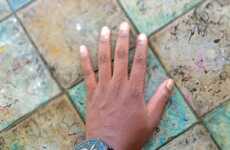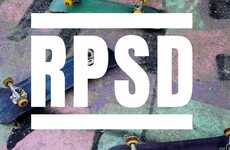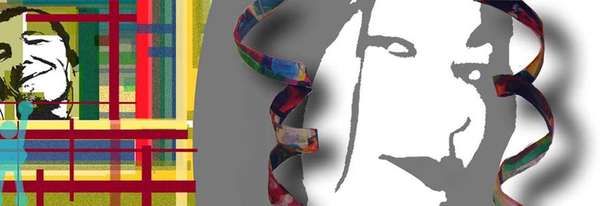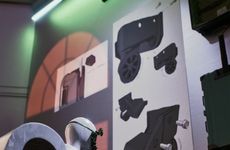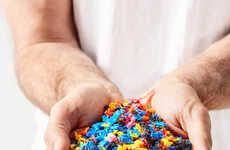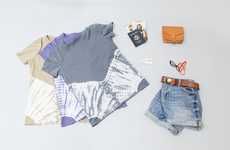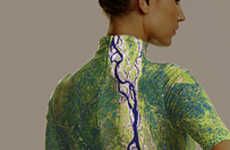
Upcycled Goods Made from Balian Plastic Bags
Tiana Reid — April 18, 2012 — Social Good
References: bombasticplastix
Samuel Miller and Niluh, much like their eco business Bombastic Plastix, are nothing short of bombastic.
After SocialBusiness.org wrote a color-popping feature on the Indonesia-based duo's pieces, dubbed Supercycled Balian Accessories, we were pumped to talk to Samuel Miller to get more on his background. Here, he goes in-depth on his interest in recycling (think making money on oyster shells) and explores his main inspiration, as well as his never-ending creative rituals.
Four Questions with Samuel Miller
1. How did the idea for the business model come about?
I had worked with waste management strategies for food service in the Bay Area/SF California and with Indian tribes in Northern California and had always had a progressive waste management plan for my various businesses over the years so it was a natural extension of those experiences. In my first restaurant 30 years ago, we actually made a profit from the oyster shells that accumulated from the oyster bar while other restaurants similar to ours were paying for their disposal.
2. How did you decide to join this sector?
All my businesses have had a social aspect even if they were straight profit model. My first dedicated social business was the rescue of a dying tiny remote town in Northern California in 1998. The owners of the commercial property, a general store and post office, were going to sell the commercial real estate to developers and the town would have been erased. I secured the necessary capital, purchased the town, changed the business model over three years and resold it to a couple raising a family that were dedicated to the community, which saved also the fire department and the small school which both would have lost their funding. It is now 10 years later and everybody is doing great and more prosperous than ever. I am a hero to those people. It is more valuable than any financial reward I could have ever obtained. It made me feel great. I just want to feel great some more.
3. How do you get your inspiration?
I say, "I try to do something every day to make my Mamma smile when she looks down from heaven, because I know I have done enough stuff to make her frown." : )
4. How do you reset yourself to be creative? Do you have any rituals?
I listen to other folks and read a lot; there is plenty of inspiration out there. If I'm feeling overwhelmed I go surfing and cleanse my mind of negative thoughts so positive ones can take their place. My motivation is a very personal issue to me I need to stand strong for my people. If I let myself down, I let my staff and partner down as well. It is my job to stay creative and positive and I try to do my job to the best of my abilities.
After SocialBusiness.org wrote a color-popping feature on the Indonesia-based duo's pieces, dubbed Supercycled Balian Accessories, we were pumped to talk to Samuel Miller to get more on his background. Here, he goes in-depth on his interest in recycling (think making money on oyster shells) and explores his main inspiration, as well as his never-ending creative rituals.
Four Questions with Samuel Miller
1. How did the idea for the business model come about?
I had worked with waste management strategies for food service in the Bay Area/SF California and with Indian tribes in Northern California and had always had a progressive waste management plan for my various businesses over the years so it was a natural extension of those experiences. In my first restaurant 30 years ago, we actually made a profit from the oyster shells that accumulated from the oyster bar while other restaurants similar to ours were paying for their disposal.
2. How did you decide to join this sector?
All my businesses have had a social aspect even if they were straight profit model. My first dedicated social business was the rescue of a dying tiny remote town in Northern California in 1998. The owners of the commercial property, a general store and post office, were going to sell the commercial real estate to developers and the town would have been erased. I secured the necessary capital, purchased the town, changed the business model over three years and resold it to a couple raising a family that were dedicated to the community, which saved also the fire department and the small school which both would have lost their funding. It is now 10 years later and everybody is doing great and more prosperous than ever. I am a hero to those people. It is more valuable than any financial reward I could have ever obtained. It made me feel great. I just want to feel great some more.
3. How do you get your inspiration?
I say, "I try to do something every day to make my Mamma smile when she looks down from heaven, because I know I have done enough stuff to make her frown." : )
4. How do you reset yourself to be creative? Do you have any rituals?
I listen to other folks and read a lot; there is plenty of inspiration out there. If I'm feeling overwhelmed I go surfing and cleanse my mind of negative thoughts so positive ones can take their place. My motivation is a very personal issue to me I need to stand strong for my people. If I let myself down, I let my staff and partner down as well. It is my job to stay creative and positive and I try to do my job to the best of my abilities.
Trend Themes
1. Upcycling - Bombastic Plastix's upcycling business model provides a disruptive innovation opportunity for waste management strategies.
2. Social Business - Samuel Miller's dedication to social businesses provides a disruptive innovation opportunity for entrepreneurs looking to have a social impact on their communities.
3. Eco-friendly Products - The demand for eco-friendly products increases, providing a disruptive innovation opportunity for businesses looking to meet consumer demand while mitigating environmental impact.
Industry Implications
1. Waste Management - Bombastic Plastix's upcycling business model provides a disruptive innovation opportunity for the waste management industry.
2. Social Entrepreneurship - Samuel Miller's dedication to social businesses provides a disruptive innovation opportunity for the social entrepreneurship industry.
3. Retail - The increasing demand for eco-friendly products presents a disruptive innovation opportunity for the retail industry to offer more sustainable alternatives.
1.6
Score
Popularity
Activity
Freshness



